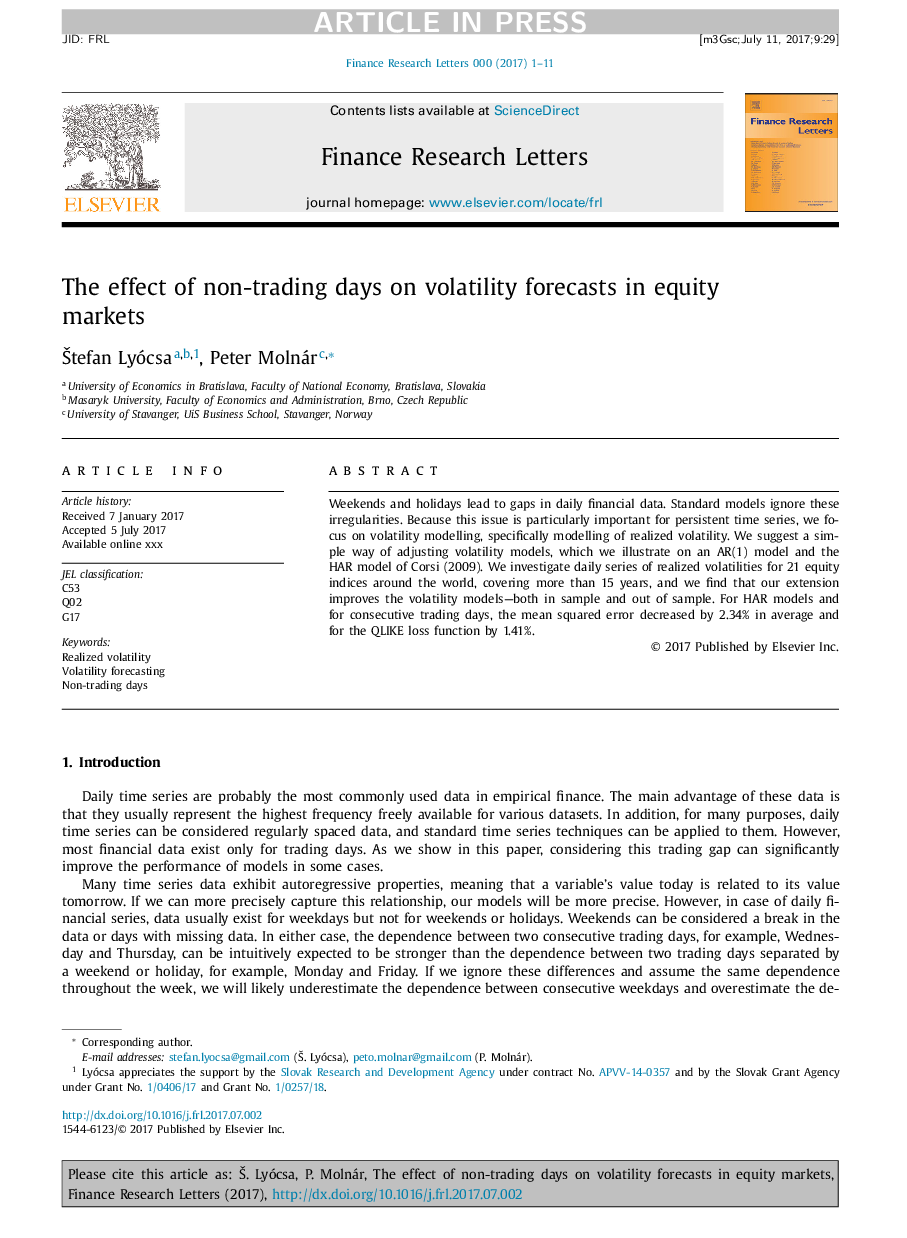| Article ID | Journal | Published Year | Pages | File Type |
|---|---|---|---|---|
| 7352211 | Finance Research Letters | 2017 | 11 Pages |
Abstract
Weekends and holidays lead to gaps in daily financial data. Standard models ignore these irregularities. Because this issue is particularly important for persistent time series, we focus on volatility modelling, specifically modelling of realized volatility. We suggest a simple way of adjusting volatility models, which we illustrate on an AR(1) model and the HAR model of Corsi (2009). We investigate daily series of realized volatilities for 21 equity indices around the world, covering more than 15 years, and we find that our extension improves the volatility models-both in sample and out of sample. For HAR models and for consecutive trading days, the mean squared error decreased by 2.34% in average and for the QLIKE loss function by 1.41%.
Related Topics
Social Sciences and Humanities
Economics, Econometrics and Finance
Economics and Econometrics
Authors
Å tefan Lyócsa, Peter Molnár,
